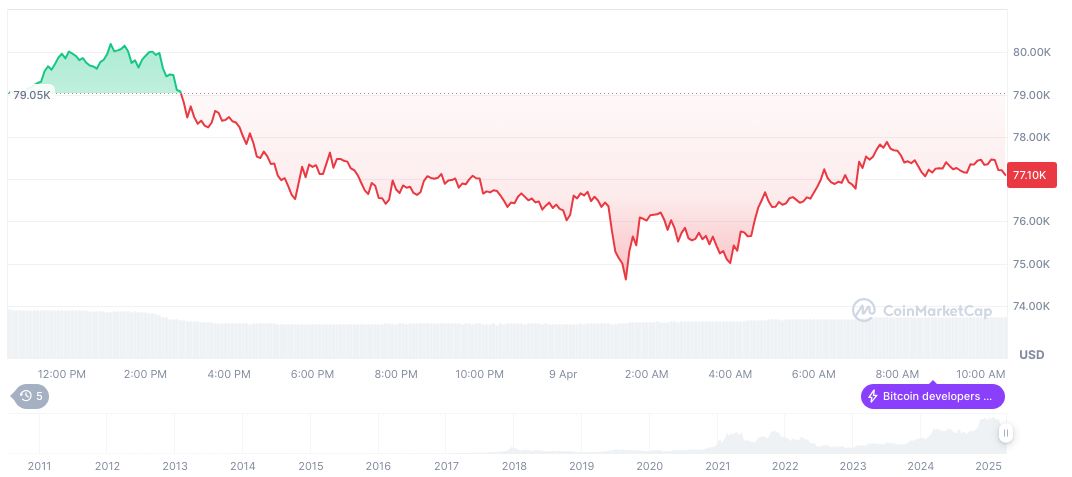- President Trump enacts new equal tariff policy affecting global trade.
- Market impact with Dow and Nasdaq dropping significantly.
- Potential increased interest in offshore digital assets.
President Donald Trump’s equal tariff policy has officially come into effect, targeting various global economies, particularly China. The policy, including a 104% tariff on Chinese goods, aims to reduce trade deficits and encourage domestic manufacturing.
The introduction of these tariffs has resulted in notable market reactions. The policy has caused a substantial disruption with the Dow dropping 1,800 points and the Nasdaq falling over 2%. It signals possible increased interest in offshore digital assets as investors seek safe havens amidst the economic uncertainty.
Stocks Drop 1,800 Points Amid Tariff Turmoil
Trump’s tariffs are designed to address trade imbalances by imposing rigorous tariffs on imported goods. The focus is on curtailing economic dependency and potentially boosting local industries in the U.S. Heightened tariffs on Chinese imports underscore a bid for greater trade equity. Key players such as China’s export sectors are specifically impacted, given their substantial trade volumes with the U.S. As highlighted by a Market Analyst, “The new tariffs have led to significant market disruptions, with the Dow dropping 1,800 points and the Nasdaq falling over 2%.”
Market responses include a noticeable downturn in stock indices. President Trump reaffirmed his commitment to these changes, suggesting open trade deals only with balanced terms. As Donald Trump stated, “I remain open to trade deals but am firm on implementing the new tariffs.” Financial markets reacted sharply, with a significant downtrend suggestive of broader economic reverberations. Highlights include Wells Fargo’s statement asserting the need for robust domestic policy adjustments.
According to Coincu research, the recent policy actions serve as catalysts for crypto adaptation amidst ongoing regulatory discourse. This elevates the importance of aligning financial infrastructure with emergent digital currencies to hedge against market unpredictability.
Historical Context, Price Data, and Expert Analysis
Did you know? The introduction of tariffs usually coincides with a spike in Bitcoin (BTC) as investors view it as a hedge against traditional market volatility.
CoinMarketCap data indicates Bitcoin’s 14-day average price stands at $76,161.56. The market cap of $1.51 trillion highlights its firm market dominance at 62.54%. Current trading volume decreases despite previous gains. Recent price changes show a 4.72% decrease over 24 hours, with a 19.45% drop over 90 days. Observations suggest investors’ inclination towards decentralized markets as traditional sectors face instability.

According to Coincu research, the recent policy actions serve as catalysts for crypto adaptation amidst ongoing regulatory discourse. This elevates the importance of aligning financial infrastructure with emergent digital currencies to hedge against market unpredictability.























